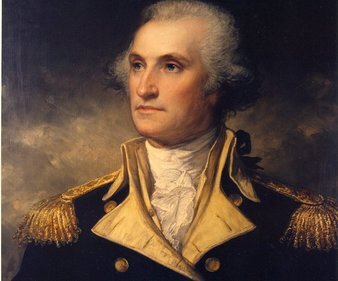- Published on
Washington's Harsh Words for Pennsylvania

George Washington knew how to bite his tongue. His response to criticism was usually a dignified silence. Like most people, he was more open when communicating with family. And so we see his unvarnished opinion about the Commonwealth of Pennsylvania in a letter to John Augustine Washington, written October 18, 1777. “[W]ith truth,” he wrote, “…it may be said, that this State acts most infamously, the People of it I mean, as we derive little or no assistance from them. In short they are, in a manner, totally, disaffected, or in a kind of Lethargy.”
He wrote this two weeks after the Battle of Germantown. It is a revealing quote in many respects. It shows a normally very careful Washington speaking his mind to someone he trusted. At the same time, it is an informed assessment. At Germantown and Brandywine before it, he had suffered from poor local intelligence, bad guides, and incompetent local militia support. Militarily speaking, William Penn's colony had been completely unprepared for war when the Revolution began. It didn't even have a militia system. In addition to the usual proportion of Tories and loyalists (generally a third, according to John Adams), a large number of Pennsylvanians were pacifists—Quakers, Moravians, Amish, and Mennonites—who were unwilling to resist established authority. Others simply had little faith in the cause. Washington had, after all, just lost three battles in a row.
Philadelphia was the seat of the Congress for most of the war, but eastern Pennsylvania was never a hotbed of revolutionary fervor. Some of the city’s most prominent citizens remained openly loyal to the Crown. The war’s most fervent revolutionary patriots came from New England, the south, and the mostly Scotch-Irish settlements of the western frontier. Many observers, then and now, have ascribed this to the one thing New England and the Appalachian settlements had in common: Reformed (Congregational and Presbyterian) Christianity. Washington himself belonged to the Church of England, however, proving that cause and effect are never simple in history.
Philadelphia was the seat of the Congress for most of the war, but eastern Pennsylvania was never a hotbed of revolutionary fervor. Some of the city’s most prominent citizens remained openly loyal to the Crown. The war’s most fervent revolutionary patriots came from New England, the south, and the mostly Scotch-Irish settlements of the western frontier. Many observers, then and now, have ascribed this to the one thing New England and the Appalachian settlements had in common: Reformed (Congregational and Presbyterian) Christianity. Washington himself belonged to the Church of England, however, proving that cause and effect are never simple in history.
0 Comments